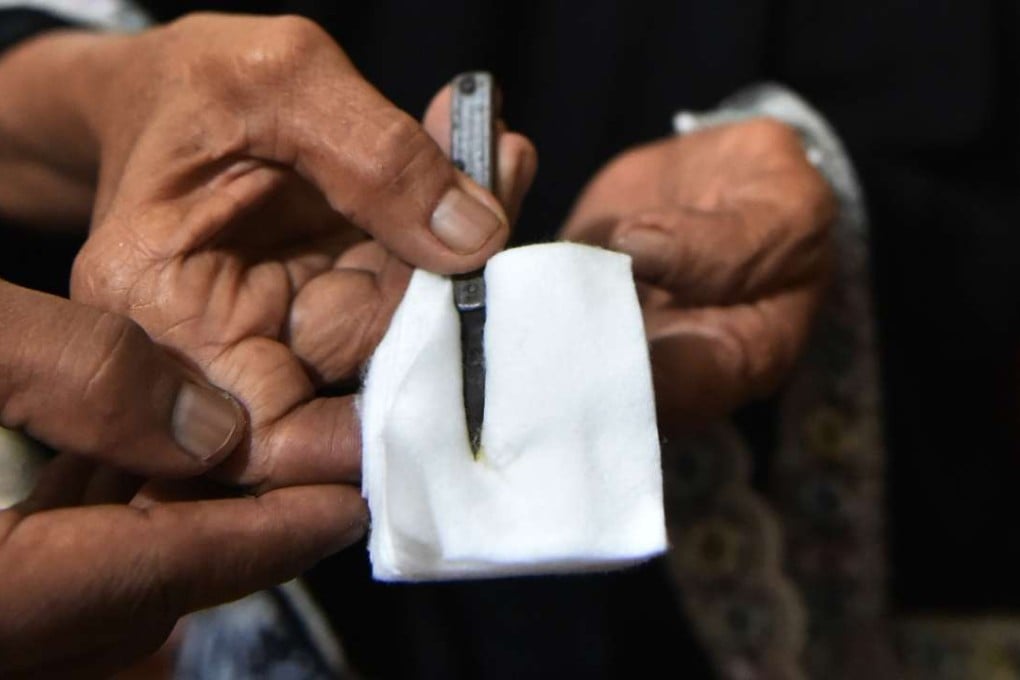
Indonesian toddler Salsa Djafar was wearing a glittering golden crown decorated with ribbons and a shiny purple dress to mark a special occasion – her circumcision day.
At the celebrations attended by relatives, shrieks filled the modest, yellow-walled house in remote Gorontalo province as a traditional healer covered the 18-month-old girl with a white sheet and sliced skin off her genitals.
The healer used a knife to remove a tiny piece of skin from the hood that covers the clitoris – which she said looked like a “garlic skin” – then stuck the knife into a lemon. It marked the end of a procedure supposed to rid the child of sin and signal she was now officially a Muslim.

“It’s hard to see her crying like this, but it is tradition,” her father Arjun Djafar, a 23-year-old labourer, told AFP at last month’s ceremony.
Female circumcision – also known as female genital mutilation or FGM – has been practised for generations across Indonesia, which is the world’s biggest Muslim-majority country, and is considered a rite of passage by many.